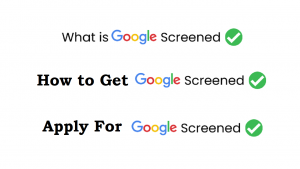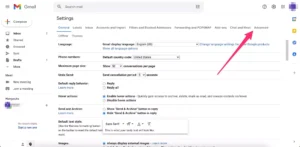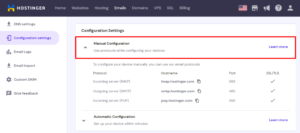In today’s digital age, online reviews have become a powerful tool in shaping consumer decisions. Among the most influential platforms for reviews is Google, which hosts millions of anonymous feedback from users worldwide. These candid opinions often serve as a valuable source of information for potential customers and businesses alike. However, with the veil of anonymity shielding reviewers, questions arise about the authenticity and ethics of these reviews. This article delves into the world of candid anonymous Google reviews, exploring their impact on businesses, the benefits and drawbacks of this system, and the challenges posed by maintaining transparency and trust in an online review ecosystem.
The Power of Anonymous Reviews
Google Reviews have evolved into a vital component of modern-day commerce. With the majority of consumers researching products and services online before making a purchase, these anonymous reviews wield significant influence over buying decisions. Positive reviews can lead to increased trust, customer loyalty, and revenue growth for businesses. Conversely, negative reviews can deter potential customers, harm a brand’s reputation, and even impact the bottom line.
Anonymity in Google reviews offers several benefits to reviewers. Users feel more comfortable expressing their honest opinions without fear of retaliation or judgment. This anonymity fosters a sense of freedom and encourages people to share candid feedback, enabling businesses to gain valuable insights into their strengths and weaknesses. Moreover, it creates a level playing field where reviews from regular customers hold the same weight as those from influential figures, leveling the feedback ecosystem.
However, the dark side of anonymity cannot be ignored. Some malicious actors exploit the system by posting fake reviews, either to elevate their own businesses or to harm competitors. This manipulative behavior undermines the integrity of the review process, misleading consumers and impacting businesses unjustly.
Authenticity vs. Anonymity
The quest for Authenticity in Google reviews is a continuous challenge. On one hand, anonymity encourages honesty and ensures that feedback remains impartial. Users can openly share their experiences without revealing personal information or facing repercussions. This uninhibited approach benefits potential customers seeking genuine insights.
However, the drawback lies in the potential for abuse. The anonymous nature of the reviews makes it difficult for businesses to identify and counteract false or misleading feedback. In an attempt to combat this issue, Google has implemented algorithms and review filters to detect and remove fake reviews. Nevertheless, this task remains a daunting one, as bad actors find innovative ways to evade detection.
Moreover, anonymity can sometimes lead to reviewers venting frustration without offering constructive criticism. This can make it challenging for businesses to understand the root causes of customer dissatisfaction and make meaningful improvements.

Impacts on Businesses
For businesses, Google reviews carry significant weight in building their reputation and attracting new customers. Positive reviews not only increase credibility but also improve a company’s search engine ranking, making it more visible to potential customers. This visibility directly translates into a higher likelihood of converting leads into sales.
On the other hand, negative reviews can be detrimental, especially when they are unjust or malicious. Addressing criticism constructively can demonstrate a company’s commitment to customer satisfaction and enhance its public image. However, when faced with an onslaught of damaging anonymous reviews, businesses can find themselves defenseless and at the mercy of public opinion.
Businesses also face the challenge of managing fake reviews that can tarnish their image unfairly. Unscrupulous competitors or disgruntled former employees may leave dishonest feedback to harm their rivals’ reputations. The burden falls on businesses to diligently monitor and report such reviews to Google.
Maintaining Transparency and Trust
The foundation of any review ecosystem is transparency and trust. Users rely on reviews to make informed decisions, and businesses depend on them to assess their performance and make necessary improvements. Maintaining the integrity of Google reviews, therefore, is essential.
Google has implemented several measures to ensure transparency and foster trust. Verified reviews from customers who made a confirmed purchase are one such step. These reviews display a “Verified Purchase” tag, which helps users distinguish between genuine feedback and potential fake reviews.
Additionally, Google’s review policies explicitly prohibit spam, fake content, and biased feedback. Users can report suspicious reviews, and businesses can respond to reviews publicly, addressing concerns or thanking customers for their positive feedback.
Despite these efforts, challenges remain in striking the right balance between anonymity and accountability. Balancing users’ desire for anonymity and the need for transparent feedback is an ongoing struggle for Google and other review platforms.
The Ethical Quandary
Ethical considerations surrounding Anonymous Google reviews are complex and multifaceted. On one hand, anonymity allows individuals to share experiences honestly and openly. This is particularly crucial when dealing with sensitive topics or businesses that may be prone to retaliation. However, the absence of accountability can lead to a lack of responsibility in the reviews shared.
The ethical dilemma becomes more apparent when considering the consequences of false or misleading reviews on businesses’ livelihoods. Innocent companies may suffer financial losses due to fake reviews, impacting employees’ job security and potentially leading to the downfall of a business.
To tackle this, some argue for increased transparency by encouraging users to provide more identifiable information when posting reviews. This approach could add a layer of accountability and discourage malicious intent.
Conclusion
Anonymous Google reviews are a double-edged sword, offering candid feedback while also providing fertile ground for abuse. The power of these reviews in shaping consumer decisions and influencing businesses is undeniable. Striking a balance between anonymity and transparency is crucial to ensuring the continued efficacy of this system.
To maintain trust and authenticity, review platforms like Google must continuously refine their algorithms and policies to combat fake reviews effectively. Businesses, too, should actively engage with their customers and use feedback constructively to improve their products and services.
Explore the Anime Universe with Anime World Portal on Google Maps
As consumers, we must be discerning and critical while reading online reviews. Considering the overall sentiment, the number of reviews, and the relevance to our specific needs can help us make more informed decisions.
Ultimately, anonymous Google reviews, when utilized responsibly, can be a powerful force for good. They empower consumers and hold businesses accountable, driving improvements in products and services across industries. As long as the delicate balance between anonymity and transparency is upheld, this ecosystem will continue to flourish, benefiting both businesses and consumers alike.




